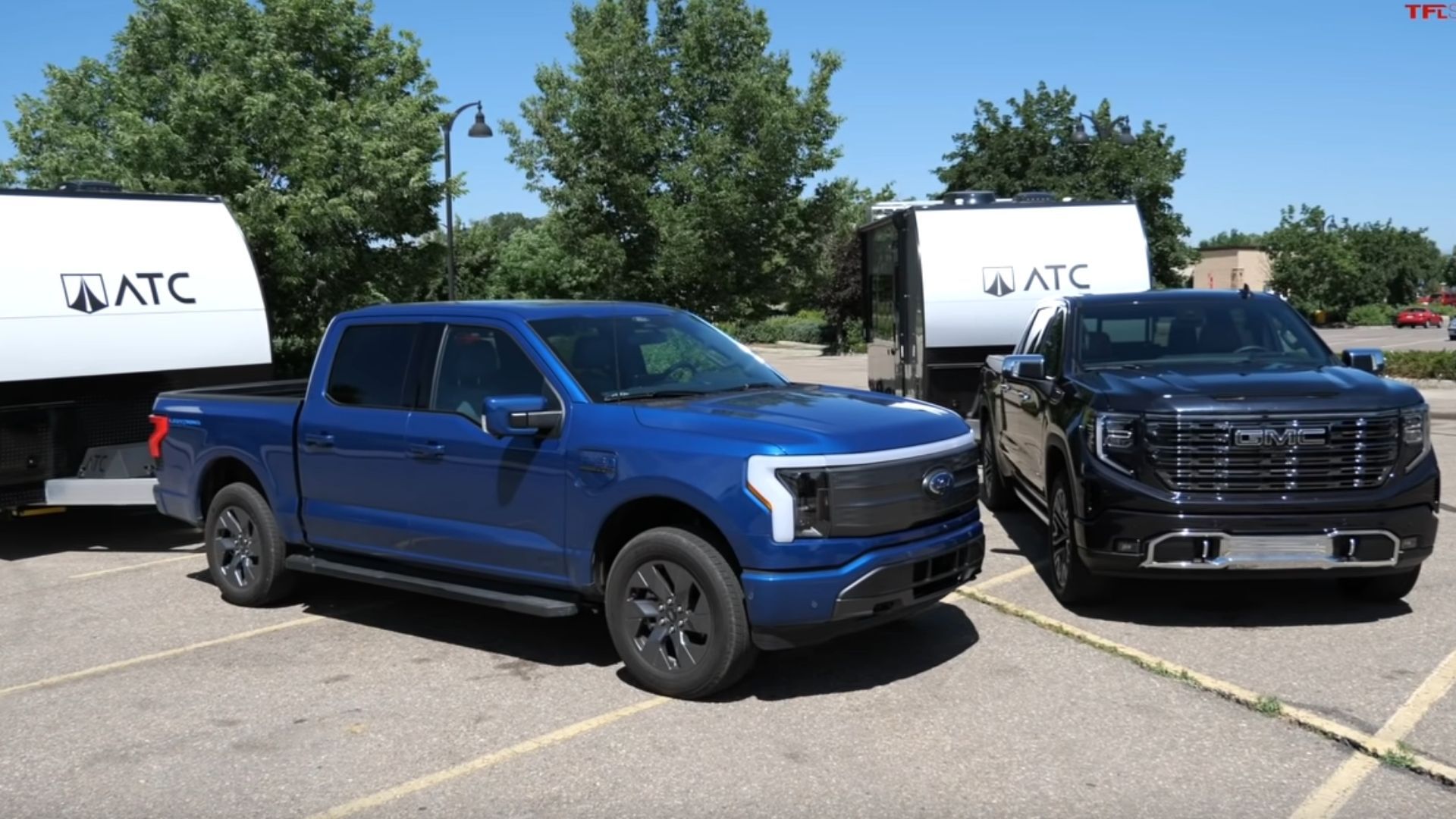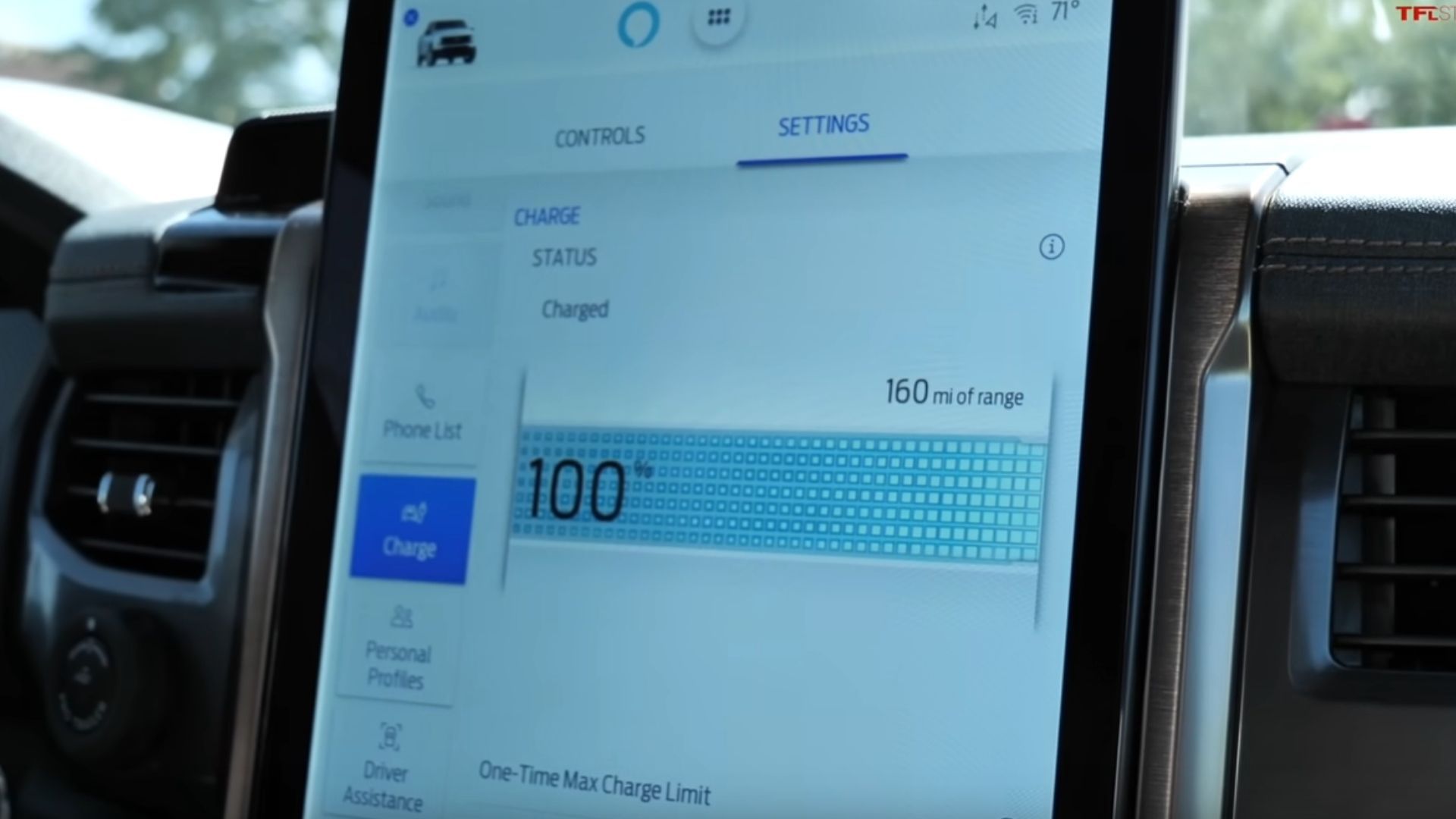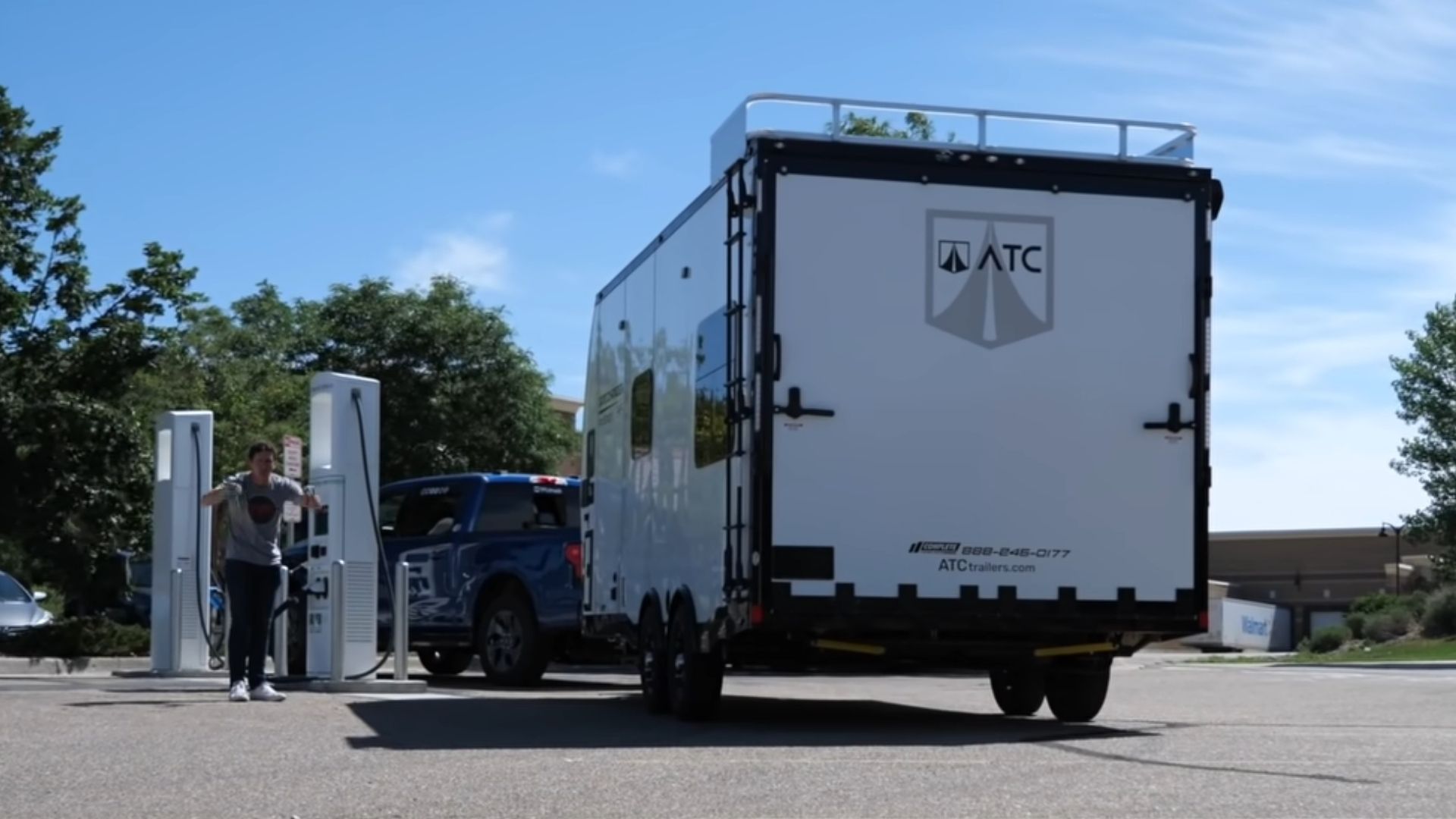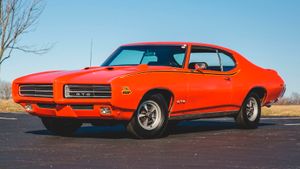It didn’t do well going up against a gas-burning GMC Sierra…
With the advent of all-electric, full-size trucks on the market there’s been a lot of debate on social media and even among friends in real life about the benefits of such a vehicle. People can get very emotional and heated defending their viewpoint on whether having a traditional ICE truck or one with electric motors is better. Instead of just debating this, YouTube channel The Fast Lane Truck decided to set up an interesting test.
Watch the latest Motorious Podcast here.
We’ve seen other automotive media outlets do their own tests between electric and traditional pickup trucks recently, but they’re mostly disappointing. After all, we firmly believe trucks weren’t just made to look cool while you cruise around town. Yet these tests have focused on drag races, 0-60 acceleration, and other nonsense. You buy a truck primarily to do truck things: towing and hauling.

Fortunately, The Fast Lane Truck gets that, so they decided to hitch an empty car carrier to a new GMC Sierra Denali Ultimate Edition and a Ford F-150 Lightning to see how they handled towing a load over long distances. The results were incredibly revealing, exposing one of the biggest doubts we’ve had about all-electric trucks and their real-world usefulness for doing truck things.
The whole point was to see which would happen first: the Sierra runs out of fuel or the Lightning’s batteries go dead. Now, we’ve known far too many EV enthusiasts who get all smug about range anxiety and how people need to just calm down because nobody needs the ranges they think they do. Well, that’s true if you only drive in the city and mostly commute. However, there are people who go out on the open road, hauling trailers in the wide open Western US where distances between cities often exceeds what your electric car can do on a single charge.

But Ford has been boasting about how with the larger chassis in the F-150 Lightning, it has that much more juice so you can really go out there and not have to worry about running the battery dry. Well, The Fast Lane Truck debunked that claim, at least when towing a trailer is involved. The Ford truck didn’t make it the 282 miles the onboard computer estimated, a figure which was adjusted to 160 miles once the driver provided the trailer specs. The plan was to go to a charging station 147 miles away, but as the batteries depleted more rapidly than expected, a destination 45 miles closer was chosen. However, the Lightning couldn’t even make it the 102 miles pulling the trailer, so the driver had to turn around and head back to a nearer charging station, arriving with 9 percent charge left.
With a 24-gallon tank in the Sierra, it had a much longer range. Like with the Ford, the computer estimates range with the trailer specs, pegging it at 264 miles. Unlike with the Lightning, the GMC did just fine on range, although when its rival turned around it just headed back to the starting point without stopping to refuel.

Another important problem with all-electric trucks, one we admittedly didn’t even think about, was exposed during this test. Charging one with a trailer hitched up isn’t exactly easy since most public chargers are set up in a regular parking stall. The Fast Lane Truck had to park the truck and trailer across multiple charging station spots to plug in the Ford Lightning. Perhaps having pull-through chargers like how gas pumps are set up would be a good idea in more places?
This test exposes the fact that EV technology isn’t ready to fully replace internal combustion engines, no matter how badly EV advocates want to see that happen rapidly. While the tech has come a long way, it still has a lot further to go.






